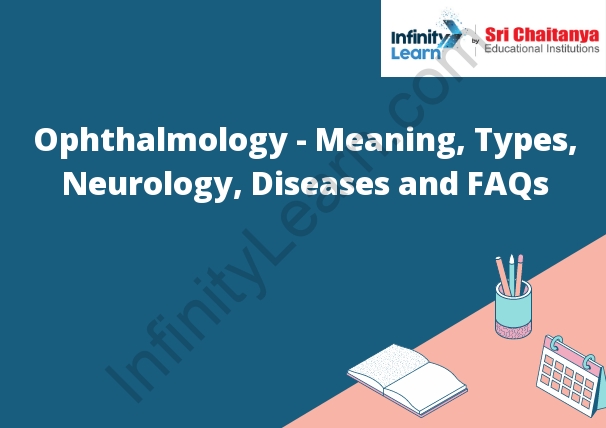Table of Contents
What is Ophthalmology?
Ophthalmology is a medical specialty that deals with the anatomy, physiology and diseases of the eye.
The cornea is the transparent front part of the eye that covers the iris, pupil, and anterior chamber. The cornea is responsible for most of the eye’s optical power. The retina is a thin layer of tissue that lines the back of the eye. The retina converts light into electrical signals that are sent to the brain. Glaucoma is a disease that damages the optic nerve. It is the most common cause of blindness in the world. Pediatric ophthalmology is the branch of ophthalmology that specializes in the diagnosis and treatment of eye diseases in children. Oculoplastics ophthalmology is the branch of ophthalmology that specializes in the surgery and reconstruction of the eyelids, orbit, and tear drainage system. Neurology is the branch of medicine that deals with the diagnosis and treatment of disorders of the nervous system.

Types of Ophthalmology Sub specialist
There are a wide variety of ophthalmology subspecialists, each with their own area of expertise. Some of the more common subspecialties include:
• Pediatric ophthalmology: specializes in diseases and disorders of the eye in children
• Neuro-ophthalmology: specializes in the relationship between the eyes and the nervous system
• Ophthalmic plastic surgery: specializes in reconstructive surgery of the eyelids and adjacent tissues
• Ophthalmic pathology: specializes in the diagnosis of eye diseases
• Ocular oncology: specializes in the diagnosis and treatment of cancer of the eye
• Glaucoma: specializes in the diagnosis and treatment of glaucoma, a group of diseases that can damage the optic nerve and lead to vision loss
• Retina: specializes in the diagnosis and treatment of diseases and disorders of the retina, the light-sensitive layer of tissue at the back of the eye
Diseases
Diseases are caused by the interaction of a pathogen with the host’s cells. Pathogens are organisms that cause disease, and can be viruses, bacteria, parasites, or fungi. When a pathogen enters the body, it can infect and damage host cells. This can lead to the development of a disease.
Some common diseases that are caused by pathogens include the flu, chickenpox, and tuberculosis. Pathogens can be spread through contact with infected body fluids, such as saliva, blood, or mucus. They can also be spread through contact with objects that have been contaminated with the pathogen, such as doorknobs, door handles, or countertops.
How is an Ophthalmologist Educated and Trained?
Ophthalmologists are educated and trained in a number of ways. They typically have an undergraduate degree in a science field, followed by medical school. After medical school, they complete a residency in ophthalmology. This residency typically lasts four years and includes intensive training in diagnosing and treating eye diseases and conditions. Some ophthalmologists also complete a fellowship in a specific area of ophthalmology, such as corneal and external disease, glaucoma, or pediatric ophthalmology.
Advances By the Opticians
- The opticians have made a number of advances in their field over the years. One of the most notable advances is the development of corrective lenses. These lenses help to correct vision problems, such as nearsightedness and farsightedness. In addition, the opticians have developed contact lenses, which allow people to see without having to wear glasses.
- Another advance made by the opticians is the development of laser eye surgery. This surgery is used to correct vision problems by using a laser to reshape the cornea. This surgery has been found to be very effective in correcting vision problems, and it has become a popular choice for people who need corrective surgery.
Interesting Facts About the Ophthalmology
- Ophthalmology is the study of the structure, function and diseases of the eye.
- Ophthalmologists are medical doctors who specialise in the treatment of eye diseases and disorders.
- Ophthalmology is a very diverse field, encompassing everything from the diagnosis and treatment of common eye infections, to the management of complex eye disorders such as glaucoma and cataracts.
- Ophthalmologists also play a key role in the prevention of blindness, and are often involved in the screening and treatment of eye conditions in people with diabetes and other chronic health conditions.
- Ophthalmology is a constantly evolving field, with new treatments and technologies being developed all the time.
- Ophthalmologists often work closely with other specialists, such as optometrists, opticians and ophthalmic nurses, to provide the best possible care for their patients.
For more visit Neurology – Definition, Subspecialties, Conditions and Clinical Tasks








